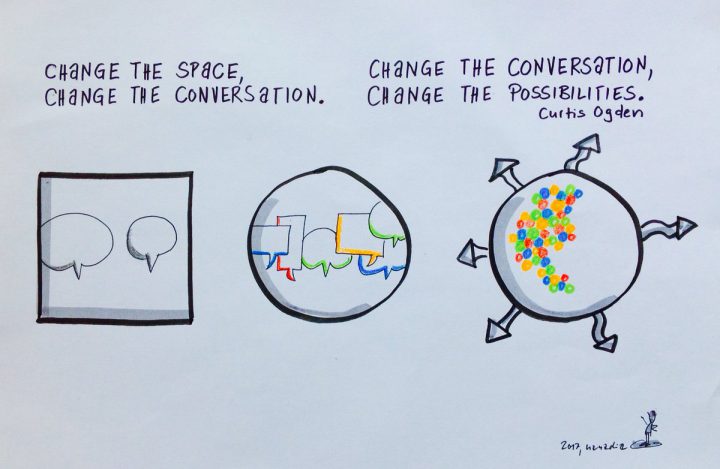Tag Archive: authenticity
February 19, 2019

Photo by tracydekalb, “Redbud Love,” shared under provisions of Creative Commons Attribution license 2.0.
The following post was originally published in 2014, and has been edited. In many ways it feels even more relevant five years later …
Over the past dozen years or so at IISC (our half-life as an organization, and my whole life as a member of this amazing community), we have seen and experienced some interesting progressions. In our Facilitative Leadership for Social Change trainings and consulting work, we talk about the “interior condition” of effective collaborative and network leadership. When I first joined the organization, we used to say that collaborative leaders and change agents embraced an ethic of “service, authenticity and respect.” Then we made the move of changing “respect,” which came across to some as a bit weak, to LOVE. For the first couple of years after making this switch, when we asked “What’s love got to do with it?” with respect to effective leadership and work for social change, there were definitely some uncomfortable silences. Some participants would ultimately want to rename love as “respect” or “passion.”
Then in 2009 we started noticing a change. More heads nodded in rooms when we mentioned the “L-word,” less nervous laughter and shifting in seats. In one particularly striking instance, during a training with health care and public health professionals, a senior and very respected physician responded,
“What’s love got to do with it? Everything! Beyond my technical skills, I am effective in so far as I am able to really see my patients, students, and colleagues, to make them feel seen for who they are.”
Read More
August 15, 2017
I love Twitter.
On the heels of the Hunts Point Resiliency Collaboration Lab (about which a blog post is forthcoming) that a team of us from IISC facilitated a couple of weeks ago, I tweeted the following –
“Change the space, change the conversation. Change the conversation, change the possibilities.”
Without getting into all of the details, by shifting what might otherwise might have been a typical meeting through the use of art, music, tactile objects, intentional arrangement of seating, delicious food, robust opportunities for interaction, etc., those in attendance acknowledged that we were able to get to authentic and important conversations that many had been eager to have. And these have opened some opportunities about which people are very excited.
My almost off-handed tweet was picked up and retweeted by a few people, including Nadia von Holzen, who then put together the wonderful graphic above and put it back into the Twittersphere. I love the enhancement and contribution. Thanks, Nadia!
This is another example of what can happen when you “think or work out loud.” In this intricately connected world, you never know who is listening and what gifts they stand poised to bring to your humble offerings.
May 8, 2017
“Clearly, we made some people uncomfortable. Good. For too long, our comfort has come on the backs of many who have been uncomfortable for a long, long time.”
–Niaz Dorry, FSNE Process and Network Team Member
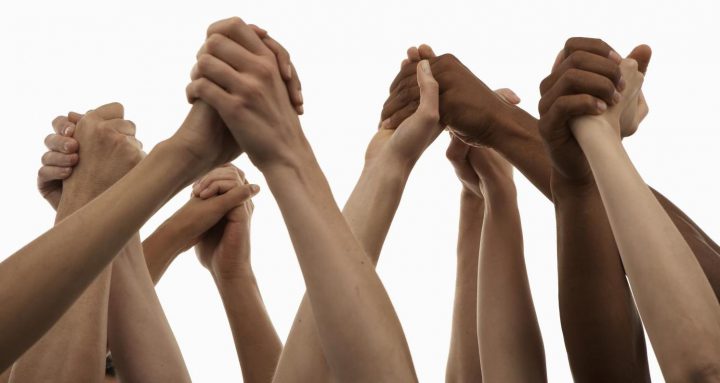
Food Solutions New England (FSNE) is a regional, collaborative network organized to “support the emergence of a New England food system that is a resilient driver of racial equity and food justice, sustainable farming and fishing, and thriving communities.”
For the past 5 years, IISC has supported FSNE to launch and structure itself as a formal network, as well as to concretize and evolve its core commitment to racial equity as it has become more diverse and inclusive and focused on systemic transformation. Over the winter, editorial staff from the Othering and Belonging Journal at the Haas Institute for a Fair and Inclusive Society solicited an article submission from FSNE to tell the story of why and how the network has operationalized its commitment to racial equity and food justice.
“While Othering processes marginalize people on the basis of perceived group differences, Belonging confers the privileges of membership in a community, including the care and concern of other members. As [john a.] powell has previously written, ‘Belonging means more than just being seen. Belonging entails having a meaningful voice and the opportunity to participate in the design of social and cultural structures. Belonging means having the right to contribute to, and make demands on, society and political institutions.'”
–Andrew Grant-Thomas, from Othering and Belonging Editors’ Introduction
The article was published last week under the title “Equity as Common Cause,” co-authored by El Farrell, Tom Kelly and Joanne Burke of the UNH Sustainability Institute (the convenor of FSNE), Karen Spiller of KAS Consulting and the Albert Schweitzer Fellowship (Karen is lead FSNE Ambassador) and myself, as network facilitator, with input and voices of many others, including Connecticut Senator Marilyn Moore, Julius Kolawole of the African Alliance of Rhode Island and Niaz Dorry of North Atlantic Marine Alliance. Read More
April 6, 2016
“If you don’t know the kind of person I am
and I don’t know the kind of person you are
a pattern that others made may prevail in the world
and following the wrong god home we may miss our star.”
– William Stafford, From “A Ritual to Read to Each Another”

A couple of weeks ago I was a participant in a SSIR webinar on network leadership. I spent my air time talking about Food Solutions New England as an example of a social change network that has been leveraging authenticity, generosity and trust to address issues of racial inequity in the food system. In telling the story, I realized that much of it amounts to a gradual process of shedding layers and “making the invisible visible.” Specifically, it has been about making visible power and privilege, connection and disconnection, tacit knowledge and diverse ways of knowing, and complex system dynamics. As a result, many in the network sense we are now in a better position to build from what we have in common, and that it is more likely that the vision of a vibrant, equitable and eco-logical food system will be realized. Read More
July 8, 2014

Photo by Leland Francisco
Over the past 8 years at IISC I have seen and experienced some interesting progressions. When I first joined the organization, in our Facilitative Leadership trainings, we talked about the “interior condition” of effective collaborative leaders. At the core we mentioned that these leaders and change agents embraced an ethic of “service, authenticity and respect.” Then we made the bold move of changing “respect,” which came across to many as a bit weak, to LOVE. For the first couple of years after making this switch, when I asked “What’s love got to do with it?” with respect to effective leadership and work for social change, there were often uncomfortable silences. Some participants would ultimately want to reframe love as “respect” or “passion.”
Then in 2009 I started noticing a change. More heads nodded in rooms when I mentioned the “L-word.” Less nervous laughter and shifting in seats. In one particularly striking instance, during a training with health care professionals in Maine, a senior and very respected physician responded,
“What’s love got to do with it? Everything! Beyond my technical skills, I am effective in so far as I am able to really see my patients, students, and colleagues, to make them feel seen for who they are.”
Read More
February 21, 2014
This post is the third in a three part series exploring the question, “Can collaboration be learned?” Part 1 and Part 2 appeared the last couple of days. This is an edited email exchange between Alison Gold of Living Cities, Chris Thompson of The Fund for our Economic Future, and myself. When we last left off, Alison had posed a series of questions about identifying and cultivating the will to collaborate.
On January 27, 2014 12:33 PM, Curtis Ogden wrote:
Alison, I really like your questions and feel like they would be great to take to a wider audience. I will say that I am profoundly influenced by Carol Sanford’s mentoring in all of this, and the belief that personal development is key to evolving our will, moving from a more self-centered perspective to “other” perspective, to understanding the symbiotic nature of different levels of systems. Read More
December 24, 2013
“Transformation comes more from pursuing profound questions than seeking practical answers.”
– Peter Block

|Photo by Bilal Kamoon|http://www.flickr.com/photos/55255903@N07/6835060992/in/photolist-bpZtvb-8A6i9c-8p2AtP-do8Bez-do8JT3-7RiJTU-ao63dG-7Cjh9a-7Co7Fm-ihgH2m-9dXKU2-bgGa4c-8CkodQ-azGM3y-cBFFBS-8ChFDT-bX6EoZ-fPzNoo-9PBH3p-7GZn1X-9iKHnC-8nxop8-9tQh9o-9tMiYv-9tMj4F-7QpV8y-do8JVU-7Co7vW-7Gh8sv-8qQBZ9-eUDNUt-7Gh3sp-9ESmzs-8nAwhG-8nxom2-8nxonr-8nAwhf-8nAwgm|
Three of our IISC blogger-practitioners have been in conversation about 3 questions they are each carrying with them into 2014 to guide and develop their practice to support social change. We invite your reflections on and additions to these: Read More
May 4, 2012
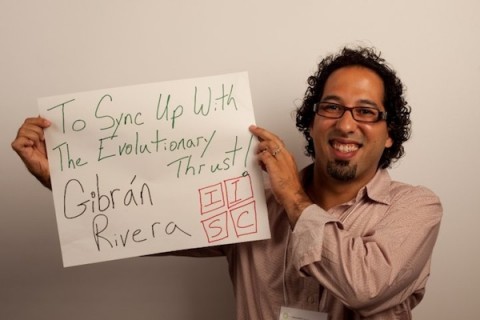
I am so proud of my colleague, Gibran Rivera, for the due recognition that he has received lately in various quarters for his deep thinking and transformative work. And I am grateful for how eloquently he captures the nature and intention of our collective work the Interaction Institute for Social Change in a recent interview:
“IISC seeks to make the invisible visible. When we are successful, people find themselves working in ways that are life-giving, generative, and unlike most of their experiences of working together. We achieve this by paying close attention to process. Process works best when everyone knows what it is and where we are [in] it. But process is not enough. We seek to create spaces and conditions that foster connectivity at the level of authentic relationship. When we are working in authentic relationship with one another, when we learn to connect to each other in the place where our shared purpose meets, then it can feel like the work is happening all by itself. But these spaces have to be designed; they have to be held and they have to be tended to. This is where we come in. And this is how interconnectedness becomes palpable.”
March 6, 2012
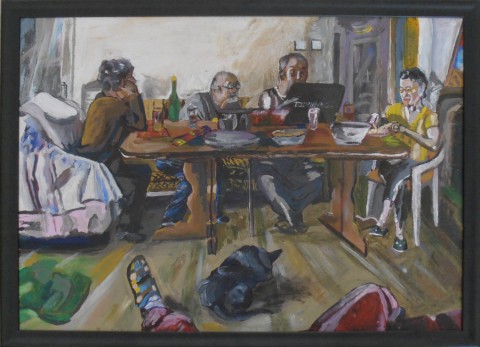
Last night we came together as IISC to bid farewell to the great Melinda Weekes; we are proud that she is moving on to be the Managing Director of the Applied Research Center. But today’s is not a post about Melinda. It is a post about community.
Read More
September 1, 2011
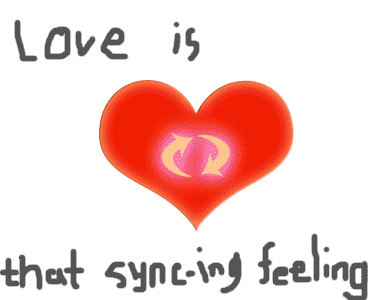
Three years ago I had the privilege of helping to design and facilitate a convening of people in Maine interested in the power of networks for social change. The day featured many interesting presenters, including Michael Edwards who gave a provocative concluding talk entitled “Love and Networking.” His words have been coming back to mind of late, as I do work in different systems where networks are all the rage and we struggle to balance the more formal structural elements with the animating consciousness and connectivity that are the transformational juice. During this Labor Day holiday, I invite you to consider Michael’s inspiring words, excerpted from the fuller presentation, and add your own thoughts and reactions: Read More
June 6, 2011
 Photo by: Juanfox94
Photo by: Juanfox94
In my last post I shared observations on building a leadership network and lessons from the Barr Fellowship. What is the role of a facilitator in such an effort? It is not an easy role to fill. The facilitator has to be able to design and hold a space that makes it possible for the group to move, to shift, to grow, while fully trusting the group’s capacity to do so. The facilitator must be able to rely on the passion and purpose that is already present among the leaders who are coming together.
Read More
January 13, 2011
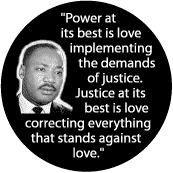
Picking up from my post the other day (“Pauses for the Cause”) about the process learnings of our recent IISC retreat, I wanted to focus a bit on the content take-aways. As I previously mentioned, the reason for our coming together as a staff was to revisit and dive into the roots of our collaborative practice: networks, equity/power/inclusion, and “the love that does justice.” It wasn’t long before we were wondering whether these are not more appropriately called the lenses through which we look as we go about our collaborative capacity building and change work. And it did not take long after that for us to question whether the labels we have selected for these lenses are the appropriate ones. I want to spend the rest of this post looking at where our conversation took us with respect to love, in particular.
What’s love got to do with it? That was not exactly our guiding question, but we got there eventually through some of our struggles to reach shared understanding and agreement about what we mean when we say “the love that does justice.” Our facilitator engaged us in writing on stickies short phrases and sentences that explained what it means to integrate this into our practice. The activity yielded a plethora of multi-colored squares that we then organized into themes. Here is what emerged, categorically speaking: Read More


